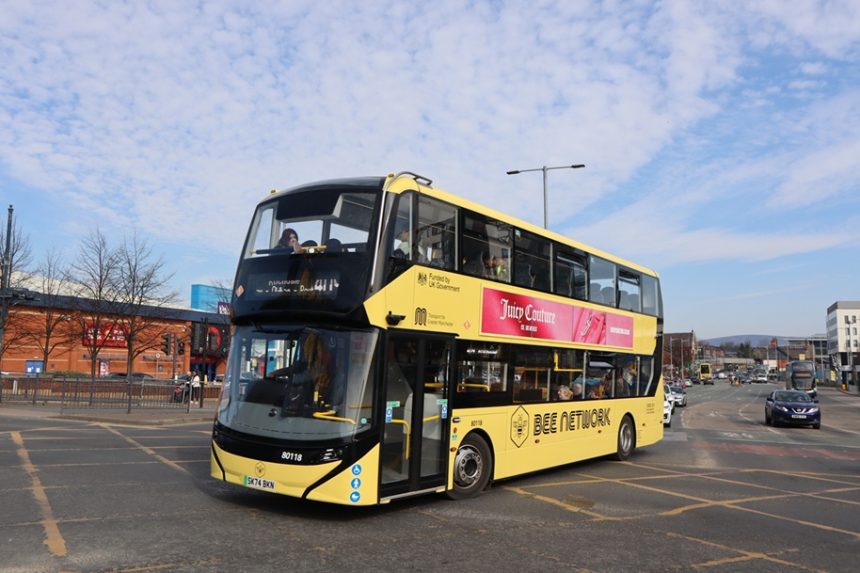Transport for Greater Manchester (TfGM) has rebutted claims that the franchised Bee Network is overly expensive and has said that without the subsidy provided, fares would be unaffordable, services would be cut and damage to the city region’s economy would result, which when combined is “the antithesis of what the Bee Network stands for.”
In a robust response to criticism over franchising’s cost, a spokesperson for TfGM echoes some points made by Transport Commissioner for Greater Manchester Vernon Everitt to routeone in a recent interview.
They note how Bee Network rollout was on time and on budget and has led to increased patronage, improved punctuality, and more affordable fares. “Above all, buses are being run in a way that puts people first,” the spokesperson continues.
On subsidy for the Bee Network, TfGM says that “similar arrangements are in place in every city region in the UK and around the world.” It asserts how the average cost of subsidising services in Greater Manchester is now around one-third cheaper than before.
That is in response to earlier claims that an equivalent to the Bee Network could have been delivered at less cost under the deregulated model.
“This is not an issue of cost control,” the spokesperson continues. “We inherited a bus system that was expensive, shrinking, and almost entirely unregulated. In FY2022/23, [it] was almost 40% smaller than in the 1970s and bus usage was struggling to recover from decades of fragmentation and more recent impacts of the COVID-19 pandemic.”
They point to greater connectivity for communities and extensive new bus investment as further Bee Network benefits.
“With an economy that is now growing faster than London’s, it is only right that we invest in and improve the bus service that takes thousands of Greater Manchester residents to work, school and the shops every day.”


























